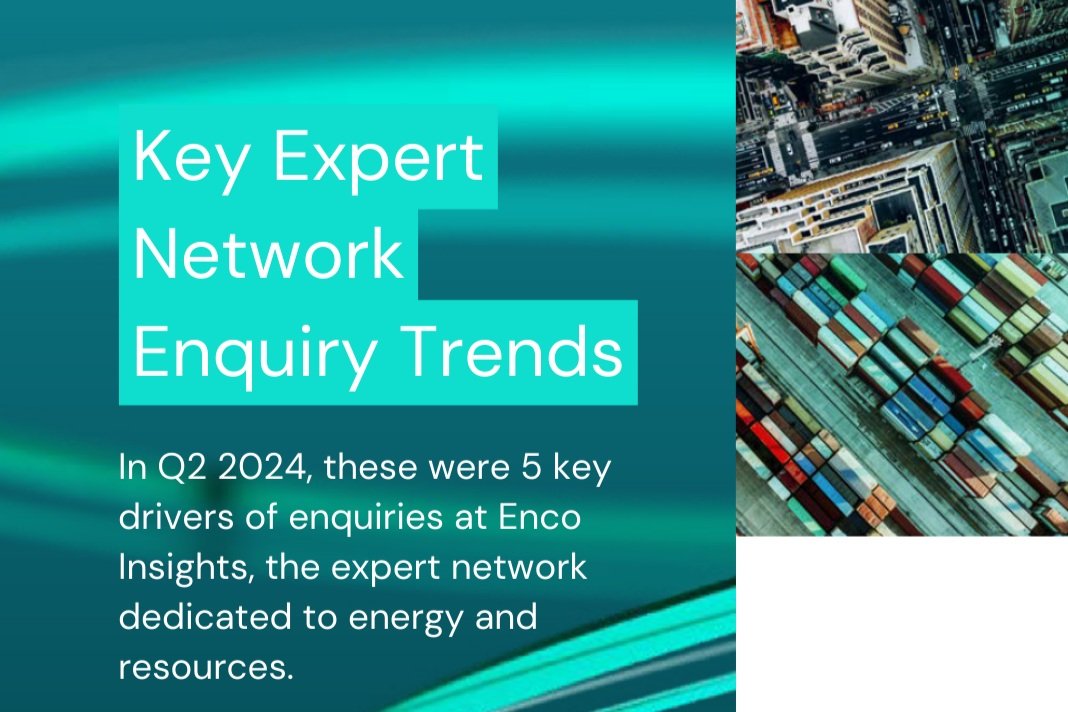Stablecoins: The Future of Commodity Transactions?
What could stablecoins mean for energy and resources?
Paul Chapman, host of the Enco Insights Podcast spoke to Nick Philpott, Co-Founder and Chief Operating Officer at Zodia Markets, a digital asset brokerage and exchange platform backed by Standard Chartered Bank and OSL.
Paul Chapman: Why are trading houses starting to use stablecoins in commodity transactions?
Nick Philpott: A lot of trading houses have to operate in jurisdictions where holding US dollars or other foreign currencies is a significant challenge. Local banking systems are often quite limited, as we've seen in a lot of Bank for International Settlements (BIS) research.
Correspondent banking networks are also starting to fray. The pressure of Financial Action Task Force (FATF) regulations has accelerated that. As a result, the ability to move value between emerging market jurisdictions - so from Brazil to Nigeria, or from Kenya to the United Air Emirates, for example - can be challenging.
On the other hand, stablecoins are as available as the internet: in some senses it's moving money in the same way that you move an email or a WhatsApp message. It's that accessibility, that speed, and that low cost that is really starting to offer a true use case for digital assets and provide an alternative to the correspondent banking system.
Paul: Can you help us understand a bit about the speed of transactions versus traditional methods?
Nick: I'll give you an example of a power company in Thailand importing coal from Indonesia. So you take your Thai Baht. You would then have to find a Thai bank that has the ability to move US dollars, or at least has a US dollar correspondent relationship with a bank in the United States. They would do a dollar tie trade.
Then you have to go to the US Fedwire system. Your US dollars may have to move from the first correspondent to another correspondent that has a dollar Indonesian Rupiah capability. Then you do dollar Indonesian Rupiah foreign exchange.
And then you have to go to the bank in Indonesia that you're trying to pay. And after that you have to go to the US Fedwire system.
Potentially you've got two banks in Thailand, two banks in the US and two banks in Indonesia. The payment systems that these banks integrate with operate Monday to Friday, in most cases. So a payment could take anywhere between three to five days. If you hit a weekend then you're looking at five days.
“In some senses it’s just moving money in the same way that you move an email or WhatsApp message.”
Whereas if you're using a stablecoin, it can move as quickly as email. In the case of Ethereum, you're looking at minutes. If you’re looking at something like Solana, you're looking at sub-one second for settlement finality. It's significantly quicker compared with the correspondent banking system - and significantly cheaper.
Paul: This will be quite a change in how financial transactions take place in the commodities markets. What does it mean for these organizations? How nascent is this trend, and where in particular are we seeing it?
Nick: It's very much a nascent trend and I think it's just starting to appear in oil spots. So it's a client here, a client there: one does oil and gas; another does agribusiness; another is a full spectrum metals trader.
We've already seen commodities companies start to push the boundaries, digitizing their workflows, particularly around things like letters of credit. So in some sense the commodities world is coming in and upgrading financial markets and payments infrastructure. It's almost at the forefront.
Enco Insights works with
commodity trading advisors
A lot of commodity companies have serious challenges with the correspondent banking system as it stands with cross-border payments. So they're looking at something like a US DC stablecoin and saying, “Well, I don't particularly like my local bank. Maybe I'm nervous about a stablecoin. But it's either a case of running three to five days of risk against the local bank that I'm not particularly happy with. Or I run three to five hours of risk against a stablecoin.”
Paul: Would this change the nature of teams within commodities in the banking infrastructure? Presumably this takes a lot of pressure off FX risk and it's just now simply taken locally.
Nick: It absolutely does. If you are a company in the UK, but you account in US dollars and you are looking to pay a supplier in Kenya, then someone in your finance team can buy a US dollar stablecoin with US dollars. Pricing is pretty transparent - because it's going to be either one to one-to-one or very close to one-to-one, provided the stable coin remains stable.
And there are ways that you can risk-assess that. Certainly some of the ratings agencies are coming out with models and approaches as to how to do that on a more repeatable level. And then you can send that to your suppliers and leave the FX decision to them.
For example, we spoke to one large trader. They have several thousand bank accounts across their estate. It costs them an absolute fortune, both in terms of banking charges, but also just admin and bureaucracy and trying to keep track of it all. So it's all also, in some ways, a simplification play.
I suppose the last thing I would say is that if you have all these different stablecoins of different currencies, all of these sit on the same blockchains - as opposed to fiat currencies, where each of those individual currencies have individual payment systems.
As a result, you can have a single custodian which could provide you with custody services or account management services in multiple different currency stablecoins. That can allow you to massively simplify your banking estate or your financial treasury management.
Navigate your next
digital
payments challenge







